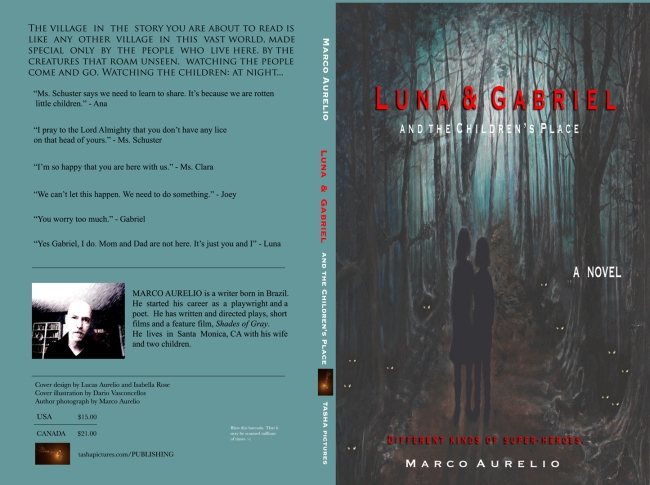
- HOME
- ABOUT
- POETRY
- SCREENPLAYS
- OBSERVATIONS
- CHILDREN'S BOOKS
- LETTERS & CARTAS
- LOVE LETTERS TO THE PAST
- |Part 1| Dr. Karla Maria
- |Part 2| Afonso Arinos
- |Part 3| Ties that Bind
- |Part 4| The Silent Worldwide Pandemic - We the People.
- CARTAS DE AMOR AO PASSADO
- | PARTE 1 | Dr. Karla Maria
- | PARTE 2 | Afonso Arinos
- | PARTE 3| Elos Psicológicos
- |PARTE 4 | A Silenciosa Pandemia Mundial
- NOVELS
- PALESTINE
- I STAND WITH...
- DONATE
- VOICES for PALESTINE
Monday, November 28, 2016
Luna & Gabriel and the Children's Place

Subscribe to:
Posts (Atom)